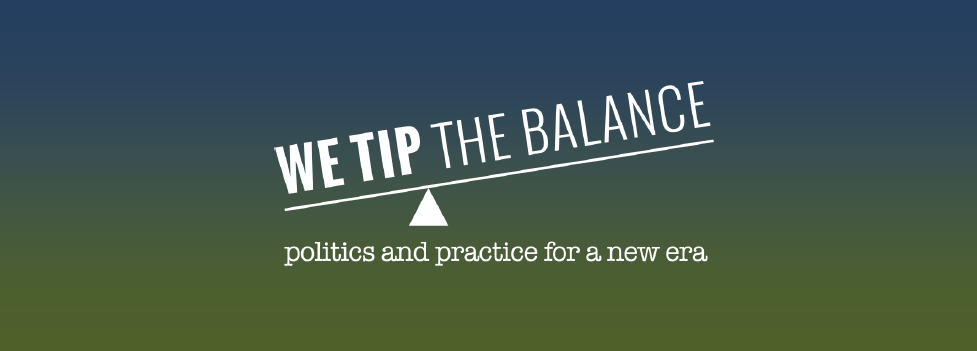We live at a time of profound change - a tipping point between one world and another. The very worldview through which we see, make sense of and relate to the world, each other, and even ourselves is changing. For many people there are deep shifts in, for example, the meaning of democracy and how to participate it in responsibly, our relationship with our physical environment, and even how we think of history or our own identities.
Whether we do so consciously or not, we are engaged in a pivotal moment for determining what relationships between the Self and Other will become the building blocks of our sciences, spiritualities, social systems, and human systems.
The tasks at hand include addressing immediate and serious needs in the near term, and to ever-more consciously and intentionally forge -- or cobble -- together new ways to order our lives together. This work is happening as communities of varying types and scales are learning to build the world they want to live in with each other. Growing awareness of this transformative process begs, as Ed Whitfield of the Fund for Democratic Communities puts it, that we learn how to think together.
This process will also transform our understanding of change itself. After all, we are embarking on change processes that, if not wholly new, are unfamiliar in fundamental ways.
It makes sense that, living at a time of profound change, our understanding of change might well deepen, transform, or become more complex.
We Tip the Balance is a place to attempt to distill - and learn about in the process - theories and strategies emerging from contemporary thought and social movement. Here there is room to collect and compile clues from the daily struggles we witness and try to discern from them where we will need to go - who we will need to learn how to collectively become - if we are to survive the morass of social and environmental challenges facing humankind. We Tip the Balance offers a way of thinking about and engaging in social change that:
- starts with the human desires, fears and sense of duty that make politics personal
- is accessible and “calls in” those for whom participation in social change is new
- honors and studies the history of social struggle
- centers contemporary forms of social struggle as reference points
- sees it as a practice with various forms, types and orders of change that we can learn about together
